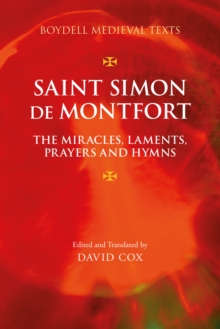
The History of Alfred of Beverley PDF
Edited by John Slevin
Part of the Boydell Medieval Texts series
Description
The first modern edition of a text which shows the suspicion with which Geoffrey of Monmouth's History of the Kings of Britain was received two decades after it first appeared.
The history of the Yorkshire secular clerk, Alfred of Beverley (c.1148 x c.1151), an important primary source in Anglo-Norman historiography, supplies a history of Britain from its supposed foundation by Brutus down to the death of Henry I in 1135.
Alfred's history is of particular interest in that it is the first Insular Latin chronicle to incorporate the legendary British history of Geoffrey of Monmouth (published c.mid 1130s) within a continuous account of the island's past. In attempting to fuse the radically new Galfridian account of the past with that of the conventional twelfth-century (Bedan) view, Alfred's use and manipulation of his sources is highly revealing and suggests a quite critical reception of Geoffrey's history, a mindset which by the end of the twelfth century appears almost entirely to have disappeared amongst chroniclers.
Alfred's history is also an important, and presently undervalued, witness to the reception and dissemination of three of the most important Anglo-Norman histories: Symeon of Durham Historia Regum, The Chronicle of John of Worcester and Henry of Huntingdon, Historia Anglorum, from which works it borrows extensively. In the manner of use of these sources, the author tells us much about the ecclesiastical and intellectual interests and outlook of the period.
Information
-
Download - Immediately Available
- Format:PDF
- Pages:438 pages
- Publisher:Boydell & Brewer Ltd
- Publication Date:31/01/2023
- Category:
- ISBN:9781800108967
Information
-
Download - Immediately Available
- Format:PDF
- Pages:438 pages
- Publisher:Boydell & Brewer Ltd
- Publication Date:31/01/2023
- Category:
- ISBN:9781800108967










